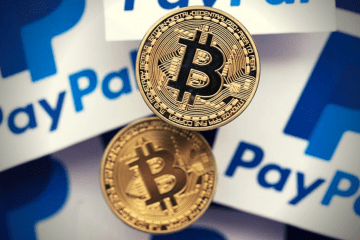Blockchain in the financial system
Blockchain technology is being developed very fast. Although new solutions arouse reluctance and lack of trust very often, it is worth to take a look at the next raised actions and see all benefits of using them.
Each financial institution cooperating with clients is required to act in accordance with designated procedures that are needed to obtain the necessary information. It is made to protect both sides of interested parts from possible criminal activities. However, these processes are quite expensive and labor-intensive. It is not surprising that companies look for any solution that will reduce these costs and complicated procedures, which are also associated with inflexible technology and inconvenience.
Blockchain is the solution to lots of problems. It simplifies data introduction and storage, shortens the duration of customer checking processes. Thanks to the system of distributed registers it is possible to automate the process and minimize numbers of requirements.
Blockchain technology allows to limit duplication of processes and gives possibility to encrypting data updates and automating data transfer in almost real time. It also allows to check the records of the actions’ history taken by the client. Blockchain solutions ensure high resistance to manipulation in transactions, consensus protocol in a decentralized transaction network and cryptographic techniques that combine consecutive data blocks. They also provide data replication and access to transaction’s audit trail and possibility to use digital signatures.
Blockchain enables to carry out all analytical and control processes in an integrated way. It allows all participants to have access to data and activities, which enables data exchange in a distributed register. Transaction’s links make it much easier to verify clients which will reduce operating costs and shorten duration.
Blockchain-based solutions bring benefits like i.e. digital notary, which enables to use of cryptographic hash and a timestamp. It also reports the entire course of the process with the inclusion of date, time and signature data. Of course, all information is private and confidential, and their visibility can be given by the user at any time.
However, the biggest problem with blockchain implementation may be a partial centralization of the network and connections with cryptocurrencies which are unstable in banks’ notion. Main plans include blockchain implementation which would not be associated with a coin in digital form. Anonymity is also extremely important – it is one of the goals of blockchain technology. It was supposed to be one of the greatest assets, while in most companies the most basic information is recorded and allow to identify the person in the event of a crime.
Blockchain technology is excellent support for the data registration process. According to it, each device is an additional element in the process of creating a scattered register. At the moment the bandwidth and transaction scalability are lower than database management systems. In addition, creating a professional analytical tool is not possible without having a separate platform. Therefore, you cannot store Big Data on it, use complicated calculations or analyze large amounts of data. Blockchain can, however, be used to secure managed data as an auxiliary. It can also handle the information to identify goods and transactions or secure identity.
By FuturoCoin Teamon 19 Jul 2019SolutionsTechnology


